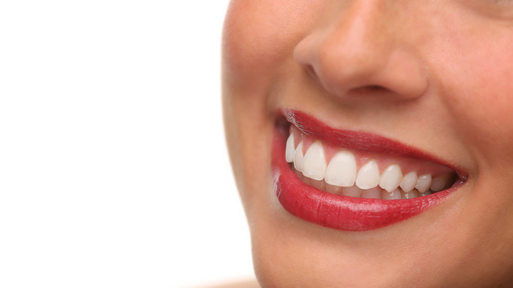Is DIY tooth whitening dangerous?
 So you want a pearly white smile and you’re thinking about buying an over-the-counter whitening kit. Before you turn to DIY whitening, let’s look at whether it’s actually dangerous for your teeth. There are some DIY teeth whitening kits we’d consider safe, but we’ve seen some kits that need closer inspection.
So you want a pearly white smile and you’re thinking about buying an over-the-counter whitening kit. Before you turn to DIY whitening, let’s look at whether it’s actually dangerous for your teeth. There are some DIY teeth whitening kits we’d consider safe, but we’ve seen some kits that need closer inspection.
You Often Get What You Pay For
Cheaper kits often don’t contain sufficient active whitening ingredients to be effective. These kits may not cause any actual harm but they end up being a waste of money as they don’t deliver the teeth whitening results suggested by the photos on the packaging.
Irritated Gums
It’s not unusual for us to see patients who’ve tried DIY teeth whitening and end up with sore, irritated gums. Ill-fitting teeth whitening mouthguards mean the teeth whitening gel used to leaks onto gums and can lead to irritation. The only way to avoid gum sensitivity is to use a custom-fitted mouthguard so whitening gel can be distributed precisely and safely onto teeth. It also delivers a much better whitening result.
5 smile-changing benefits of cosmetic dentistry
 Cosmetic dentistry has helped millions of people’s smiles. These specialized treatments and procedures can improve the appearance of your teeth and enhance the quality of your life. Here are five smile-changing benefits of cosmetic dentistry.
Cosmetic dentistry has helped millions of people’s smiles. These specialized treatments and procedures can improve the appearance of your teeth and enhance the quality of your life. Here are five smile-changing benefits of cosmetic dentistry.
Dark or Stained Teeth
Naturally, most patients turn to whitening treatments to remove teeth stains for a brighter, healthier smile. These treatments, whether at our office or through take-home whitening trays, are vastly superior to the over-the-counter whitening products you’ll find at the grocery store.
Cracked or Worn Teeth
Fortunately, a crown can make all the difference in correcting cracked or worn teeth. A crown covers your tooth and provides reinforcement while protecting it against further damage.
Large Gaps
A large gap between your teeth can be a noticeable cosmetic flaw. You may believe braces are required to close this gap, but in many cases a set of porcelain veneers or dental bonding can be just as effective.
3 myths about tooth fillings
 Today, we’re dispelling a few myths about tooth fillings. If you believed any of these, now’s the time to set the record straight.
Today, we’re dispelling a few myths about tooth fillings. If you believed any of these, now’s the time to set the record straight.
Myth: Tooth Fillings Don’t Last Very Long
Fillings can last for over ten years with proper care. Aside from choosing a material known for its longevity, you can improve your filling’s life span by maintaining good oral hygiene, avoiding sugary and sticky foods, and scheduling regular dental check-ups.
Myth: Getting Your Tooth Filled is Painful
It’s normal to feel worried or apprehensive about getting a dental filling. The good news is that most cavities can be filled quickly and with little to no discomfort.
Myth: If Your Tooth is Not Aching, You Don’t Need a Filling
One indication that you may be suffering from cavities is a toothache. But that’s not always the case. Mild decay may not cause any pain or show other symptoms. But, if left untreated, the tiny cavities can get worse and lead to other dental issues. The pain you’ll experience may be a sign that the decay has spread and has reached that the nerves inside your teeth. When this happens, you may need more than a simple tooth filling.
Schedule a Visit to the Dentist
Think you might need a tooth filling? Or has it been a while since you last saw the dentist? Schedule an appointment today and we’ll help you get the bright, healthy smile you deserve.
How to care for your veneers
 Like natural teeth, veneers are susceptible to plaque and bacterial build-up. Insufficient dental care can lead to receding gums, meaning the junction between your veneer and teeth will become increasingly visible. If it worsens, you may have to replace the veneer entirely. Positive oral hygiene habits help maintain the quality and longevity of your veneers.
Like natural teeth, veneers are susceptible to plaque and bacterial build-up. Insufficient dental care can lead to receding gums, meaning the junction between your veneer and teeth will become increasingly visible. If it worsens, you may have to replace the veneer entirely. Positive oral hygiene habits help maintain the quality and longevity of your veneers.
Reduce Alcohol Consumption
Regular alcohol consumption can cause the bonding cement under your veneers to weaken, increasing susceptibility to corrosion, staining and damage.
Avoid Teeth Grinding
Teeth grinding and clenching at night can cause damage to the porcelain, wearing down your veneers over time. Excessive pressure from grinding may also cause chipping to the veneers. Wearing a mouthguard when sleeping is a great preventative measure.
Does Invisalign hurt?

Invisalign helps move your teeth into position for your healthiest, happiest smile. But does that process hurt?
Everyone is Different
During that first week of Invisalign treatment, expect your aligners to be very snug. Your dentist will show you how to take them in and out, but it may be a bit difficult at first. Removing your aligners will become easier over time as the aligners loosen up. Since the aligners are designed to begin actively moving your teeth, you’ll likely feel some discomfort for the first few days.
Because Invisalign forces your teeth into new positions, they have to be hard and durable. Each tray is made of molded plastic. Depending on the type of Invisalign treatment you choose, the trim line of your aligners can vary significantly. The more plastic that is left on your set of trays can create more friction points in your mouth. Patients can deal with these issues using dental wax or filing rough spots, giving them a measure of Invisalign pain relief.
Do You Need a Root Canal?
 When a tooth is cracked or has a significant cavity, bacteria is able to enter the pulp, and if left untreated, can lead to serious infection, bone loss, or the loss of the tooth itself. A root canal is a dental treatment used to repair a diseased tooth by removing the pulp inside of the tooth and filling the canal to seal the space. This procedure can help save your teeth for a lifetime. Your dentist may recommend a root canal when your tooth shows signs of infection or significant pulpal nerve damage.
When a tooth is cracked or has a significant cavity, bacteria is able to enter the pulp, and if left untreated, can lead to serious infection, bone loss, or the loss of the tooth itself. A root canal is a dental treatment used to repair a diseased tooth by removing the pulp inside of the tooth and filling the canal to seal the space. This procedure can help save your teeth for a lifetime. Your dentist may recommend a root canal when your tooth shows signs of infection or significant pulpal nerve damage.
Think you might need a root canal? Here are some signs to look for.
Discoloration of Your Gums
Infection at the roots of your teeth can show up as gum discoloration. Your normal shade of gums is probably familiar to you, but if there’s a patch that’s darker than the rest, infection near a tooth’s root may be to blame.
3 Negative Impacts of Coffee on Your Teeth

Did you know that Americans, on average, drink over two cups of coffee every day? While it’s how many adults kick off their morning, drinking an excessive amount of coffee can affect your mouth, teeth, and gums in negative ways.
Teeth Stains
The surface of your teeth may look smooth, but the layer of enamel covering your teeth contains numerous ridges and cracks. Food particles and pigments from different beverages, such as coffee, will embed in these ridges and cracks, which discolors the surface of your teeth. Without intervention, such as proper brushing, routine cleanings by your dentist, and whitening treatments, the coffee stains will become more difficult to remove.
Why oral health is essential during pregnancy
 A mom who cares for herself is also caring for her unborn child—that's especially true when it comes to oral health. When you take care of your teeth and gums, it can potentially make a difference for your baby, both before and after birth.
A mom who cares for herself is also caring for her unborn child—that's especially true when it comes to oral health. When you take care of your teeth and gums, it can potentially make a difference for your baby, both before and after birth.
It's common for a future mom's tooth and gum health to decline during pregnancy. Some causes include:
- Everyone's tired at the end of the day, but add in a pregnancy, and that leads to a whole new level of exhaustion. As a result, routine nighttime brushing and flossing can get skipped—in addition to regular dental visits.
- Hormonal changes during pregnancy can endanger the health of mom's gums and cause pregnancy gingivitis. Untreated gingivitis can lead to periodontitis—a more serious form of gum disease that includes bone loss.
- Eating more often during pregnancy is common, but frequent snacking and grazing puts teeth in constant contact with acid in food. This also leads to increased production of acid-loving bacteria.
- When choosing a prenatal vitamin, steer clear of chewy or gummy vitamins, especially if you’re eating them after brushing your teeth or before bed. They stick on the teeth and most contain sugar that can damage teeth.
Top 5 brushing apps for kids
 Good habits now can help kids avoid problems in the future resulting from poor oral health, including gum disease, cavities, and tooth decay. Some kids don’t like to brush their teeth because they find it boring. Don’t worry, brushing apps can help! Here are five brushing apps to try first.
Good habits now can help kids avoid problems in the future resulting from poor oral health, including gum disease, cavities, and tooth decay. Some kids don’t like to brush their teeth because they find it boring. Don’t worry, brushing apps can help! Here are five brushing apps to try first.
Disney Magic Timer
As kids brush their teeth, hidden Disney and Marvel characters appear onscreen (twenty-three characters in all). When kids brush longer, they can win prizes for a magic album, which keeps track of their progress on a calendar and gives kids badges for every milestone they reach.
Chomper Chums
This cute app uses three cuddly animal characters to help promote oral health. Colorful animations reward kids when they brush twice a day for two minutes each session.
How to keep your toothbrush clean
 People try all sorts of ways to clean their toothbrushes. Some freeze it, boil it or invest in a pricey ultraviolet toothbrush sanitizer. But are these the best ways to disinfect your toothbrush?
People try all sorts of ways to clean their toothbrushes. Some freeze it, boil it or invest in a pricey ultraviolet toothbrush sanitizer. But are these the best ways to disinfect your toothbrush?
Experts say no. Here’s what to do instead.
Use hot water
Forget soaking a toothbrush in mouthwash or denture cleaner or using UV light cleaners. Use some old-fashioned hot water. The reason you use hot water is that you have a natural flora of bacteria living in your mouth that’s necessary for a healthy environment. It’s not important to try to completely remove this bacteria from your toothbrush.
Back-to-school foods for a healthy smile
 It’s that time of year again when summer comes to a close and kids are back in the classroom. Send them to school with a healthy smile with these tasty foods.
It’s that time of year again when summer comes to a close and kids are back in the classroom. Send them to school with a healthy smile with these tasty foods.
Fruit
Fruits are easy to pack and full of vitamins and fiber. Remember to choose real fruit instead of fruit leathers or fruit gummies, as these treats stick in the pits of the teeth and cause cavities.
Veggies
Most veggies are readily portable with very little prep needed. Their crunch helps clean teeth, so try some carrots or celery sticks with hummus to dip in.

